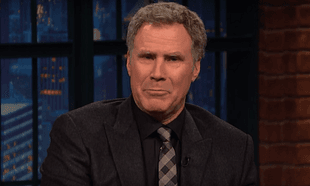The World Cup is coming to Brazil, a country that loves football perhaps like no other, and the people are taking to the streets in protest. Why? The Man Cave tries to find out...
Everyone has that one World Cup moment where they can remember where they were and what they were doing, and it marks the special connection with a tournament that, no matter how many problems seem to occur in the build-up, always captures the imagination of the world. This summer’s tournament may provide a few of those, but it will also showcase a country that has been conflicted and troubled in the run up to the event which starts this week. Paulo Ito's street art perhaps sums up the problems more succinctly than anyone has to this point with this striking and powerful image.

Brazil is a country of division. By nature of its scale, its history and its geography, it can’t be considered as a coherent single entity, given that it is the size of the continental United States, something which will become very apparent with the differing climates and environments that we will be able to glimpse in the games. From the tropical climes of Manaus to the more temperate Curitiba or Porto Alegre, there can be a temperature difference of around 20°C, and while that is merely talking about the weather, there are so many more facets and nuances to the country.
That diversity is present too in the population. For instance, there are large communities of Asian Brazilians, in particular those of Japanese descent, a lineage to which the the recently-retired Deco belongs, even though he chose to play his international football for Portugal. There are enclaves of fair-haired Germans all over the country that have influenced a variety of different fields: former Brazil coach and World Cup-winner Dunga claims German heritage, while Gisele Bündchen made a name on the international stage as a model and humanitarian. Architect Oscar Niemeyer, also of German descent, quite literally shaped the country, and in the middle of it sits his opus, Brasilia. Huge parts of the population also consider themselves to be of Lebanese or Syrian heritage, such as World Cup winner Mário Zagallo, and that’s all before you start to count those who consider themselves as indigenous peoples, those that came from Portugal, and the huge number of Brazilians who claim African heritage, given that slavery was only totally abolished in the country 1888, with an estimated four million people being brought into the country in chains.
While it suits us to think of Brazil, a country with a population of around 200 million, as a single mass of football-loving people who love to party and listen to samba, the real picture is very different, and the protests at the Confederations Cup last year showed that. Football alone is no longer enough to placate the people, and it won’t work as a distraction to avert the attention of the public from the issues that are plaguing Brazil. There are several of those key problems that remain unresolved as the eyes of the world turn towards the South American continent this week, but the main ones centre around the use of public money. What hasn’t helped either is the timing of the event. The boom that was supposed to see the BRIC countries rise up and become the most powerful economies in the world is apparently on the wane in Brazil, and with the spectre of inflation once again on the horizon, the amount of money that this tournament is costing is put into stark relief.

The protests in 2013 were sparked into life by an increase in the cost of public transport, and while there were other underlying problems, this did typify what has gone wrong since they began preparations for the tournament. The promise was that public money would not be spent to fund the World Cup, and that there would be infrastructure improvements, so when the people were asked to foot the bill for a public transport service that was the same as it ever had been, they’d had enough. There is more than that at stake now, as FIFA have entered the country, and as Theo Harden, Professor at the Universidade de Brasilia, points out, have arrogantly begun imposing their will, overruling existing regulations which have been in place in Brazil for years. One such sanction has been the imposition of a cordon sanitaire around the stadiums, another has been for beer to be sold in the grounds, a practice which had been stopped in Brazil in the interest of health and safety. However, given that one of the main sponsors of FIFA is a rather large beer company, that would have to change, clearly.
2014 #WorldCup Protests, Strikes Continue In #Brazil As Tournament Nears [PHOTOS] Via @IBTimes https://t.co/tvnpXvQt5t pic.twitter.com/VBNLzBXQ3J
— Anonymous Operations (@YourAnonCentral) June 9, 2014
Police brutality and corruption, seen in the riots and conflicts between the authorities and residents of the favelas, has been something else which is a cause for concern. These military operations were sold as an operation to clear the slums of drugs and gangs, bu the reality is much more reminiscent of scenes from Jose Padilha’s iconic film Elite Squad (Topa de elite), which can be described as semi-fictional and depicted a similar process occurring before a visit from the Pope. What the director envisioned seems to be coming true, in an eerily prescient fashion.
PHOTOS: 1 dead in #Rio de Janeiro after long night of violent protests. https://t.co/jETTGGMt87 via @mashable pic.twitter.com/Z2vt4PWaB8
— Jim Roberts (@nycjim) April 23, 2014
A survey by Amnesty recently reported that 80% of Brazilians were in fear of their own police force, and that they could well be tortured if arrested. If, when the protests take place during the tournament, their response is heavy-handed, it will no longer be confined to the realm of international news pages, where it has been up until this point, rather the whole world is watching, now more than ever. With the traditional media descending on the country there will be an increased focus, but where this tournament will be different to others is the pervasiveness and omnipresence of social media. In large protest groups, no acts of violence from either side will go unseen or unrecorded, there is no hiding place anymore.
This isn’t the first, nor will it be the last World Cup which has had problems, this special tournament does not exist in isolation but rather sits in the context and reality of where it is held, even if it does allow for a certain degree of escapism for a length of time. In 1978 in Argentina the military junta and their role in disappearing thousands of their own people was highlighted, but also glossed over as the host nation marched to victory. In 2010, a similar problem of where the money that FIFA was getting was going and the fact that many of these stadiums would be left as white elephants hung over the tournament. The tournament in Qatar in 2022 has already created a massive number of issues as a result not only of corruption but also regarding the treatment and safety of migrant workers. In 1950 the last time Brazil held the tournament, they also hoped to showcase the country at an important time in its development, as it underwent a process of modernisation, but the events in the final at the Maracanã and the fallout afterwards only served to highlight the societal problems which Brazil had tried to ignore, a parallel which proves the old maxim that history tends to repeat itself.
And yet…
And yet still the people come together, to welcome visitors from all over the world to their home, and yet the people support their team and the team stands in unity with them.
David Luiz, one of the central characters of the team off the pitch, was vocal in his backing for the protests during the Confederations Cup. Other team members who are similarly important for squad morale such as Neymar joined with him, and that moment when the team and the fans sung the anthem together in the Marcanã during the final of that tournament was more a statement of togetherness from both sides than any commentary on the government. The placid banks of Ipiranga heard the blaring shout of a heroic folk saying “we represent them and they represent us”.
At the end of all this, FIFA, as a non-profit organisation, will leave with the majority of the money earned, and having paid little tax. It is not the problem, but rather it is emblematic of the problem. When the media attention is gone somewhere else, when the curtain closes after a few weeks, what will the legacy left behind be? The preparations made for the hosting of the World Cup are superficial, they are short-term, but the problems will still be there when it's all over. There is no greater window of opportunity for the protests to try and pressure the government into action, because when the circus leaves town, they're going to leave one hell of a mess behind.
Main pic via EvertonPhotos on Twitter







































































